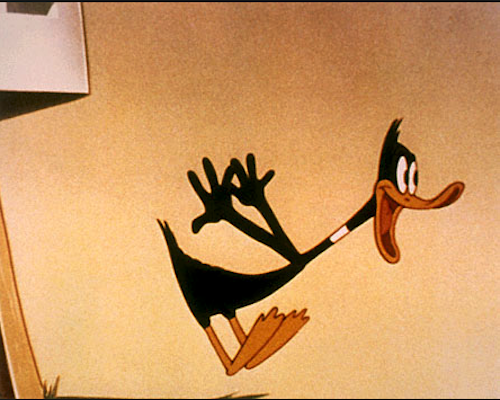'The Words Are Purposes. / The Words Are Maps': on the Social Turn in Poetry (Part 2)
BY David Lau

2.
The poet often thought most typical of the postmodern period is, of course, John Ashbery. “He is…the poet who has thought most deeply about the mental life that mass culture grants to us,” as Cary Nelson puts it. My own work, especially the work in my first collection Virgil and the Mountain Cat, is particularly indebted to his mix of cheerful surrealism and aggressive disjunction—a fleeting capture of the sensorium at rest while in motion, enlightened and mystified, in the era after industrial modernization and its attendant aesthetic developments (alias, modernism). Not a socially engaged poet, the urban sophisticate Ashbery was ever wary of the sententiousness of much so-called political art. (Indeed, his strongest poetry comes just after the heyday of artistic commitment.) And though the a-politic of Ashbery is often stated (“Vietnam” as the unmentionable of his middle period), he may have read in his bones—by way of haunting figuration, homology, mediation, participation, or symptom—the crisis of a diffuse subjective agency in our singularly depoliticized era of cultural capitalism since the 1960s.
Ashbery was with Adrienne Rich in that a technical shift distinguishes Ashbery’s aforementioned middle period: linguistic commonplaces and public utterance became more of a focus in his work, along with a new layer of popular cultural reference. He was increasingly led to question the way a commodified world shapes human consciousness. More rewarding than many tomes on the aesthetics of postmodernism, Ashbery’s poem “Daffy Duck in Hollywood” begins with a huge anachronism of 15th century Spanish playwright Fernando de Rojas’s character Celestina singing “I Thought About You,” one of many instances of sublime anachronism in the poem. Enormous in its imaginative lushness, and ironically Miltonic in its articulation of a defeated hero, this dramatic monologue in the voice of Daffy gorgeously directs a species of reference and allusion distinct from Pound or Eliot’s, one that threatens to undo any sense of “meaning” in the work: “The allegory comes unsnarled / Too soon.” Low and high reference don’t simply contrast one another so much as smear out a horizon of meaningful and particular previous times. The poem presides over historical development’s extinguishment of meaningful individual or collective life, where those formerly vital illusions and metaphysical distinctions hiss with dissipation.
Towards the poem’s enigmatic finale, a poetic way of seeing the postmodern landscape of fully realized commodity culture emerges as a way of partially rescuing Daffy and, by extension, poetry: “Not what we see but how we see it matters.” And our Disney-fied world, cartoonish and ahistorical even in the midst of storms of change and pacification, is here estranged, which is to say our perception of it is vitally renewed, even if the poet is more pessimistic about this world’s transformation than Baraka or Rich. Melancholic but undefeated, there’s a sprightly disappointment with being that characterizes this poem, given this world of inassimilable fragments of experience, and representations of representations that continue fragmenting further.
3.
Political poetry addresses the possibilities and the realities of deliberate action. The socially conscious poetry emerging in these recent post-economic crisis years of global leftish vigor has a certain quality of portraiture: scenes of struggle, instances of solidarity. There’s a yearning, dreaming dangerously quality to this work. These poems’ renewals of perception awaken us to our historical transition; an old world is dying and a new one is beginning to be born. The recent book Why It’s Kicking Off Everywhere, by BBC journalist Paul Mason, is a good guide to this changed world.
In this historical context, I’d like to elaborate on the aforementioned social turn in my own work. Literary experiments like my recent poems are a response to the challenge of social change. The reader of my work in turn is challenged to keep up with a demanding poetic sequence in constant rushing motion—by this I mean torrents of allusion and dialect. My poems narrate, quote, dramatize, sing, rant, and translate—they are, in the sense of being plural, being multiple. And yet there is provisional order in the music and stanzaic architecture, as well as the socially charged language.
My first book had plenty of political and historical themes but also lots of non-meaning or non-referential “playing” with the abyss that separates signifier from signified, sounds from semantics. Estranging conventional utterances, I arrived at a bluesy and broadly themed, indirect, quasi-personal or allegorical mode. Poet Mark Levine’s phrase captures the book’s vision quite well: “An unforgiving glimpse of the horizonless present.”
My recent work locates itself in a new present, one where horizons and historical directions, however incipient, have emerged once again. Indeed a recent history of political exigency impels my new collection. In a sense, it has a narrower scope; on the other hand it’s more global—the real globe, factual, disgusting, and kicking off everywhere, is popped up in it.
“Todos Los Everything,” a poem from my new collection, might serve as illustration. Key motifs from my first book linger on in the poem: late Chicanismo or cultural mestizaje, along with abstract non-representational linguistic events and structures of thought—a whole range of images, music, insults, and humor matter too. The point is to seethe in a-one-word-at-a-time montage of invention. Slowed down to defamiliarize, this is an allegorical and enigmatic political poem.
Poet David Lau grew up in Long Beach, California. He has described his family as a “Chicano-Chinese ...
Read Full Biography

